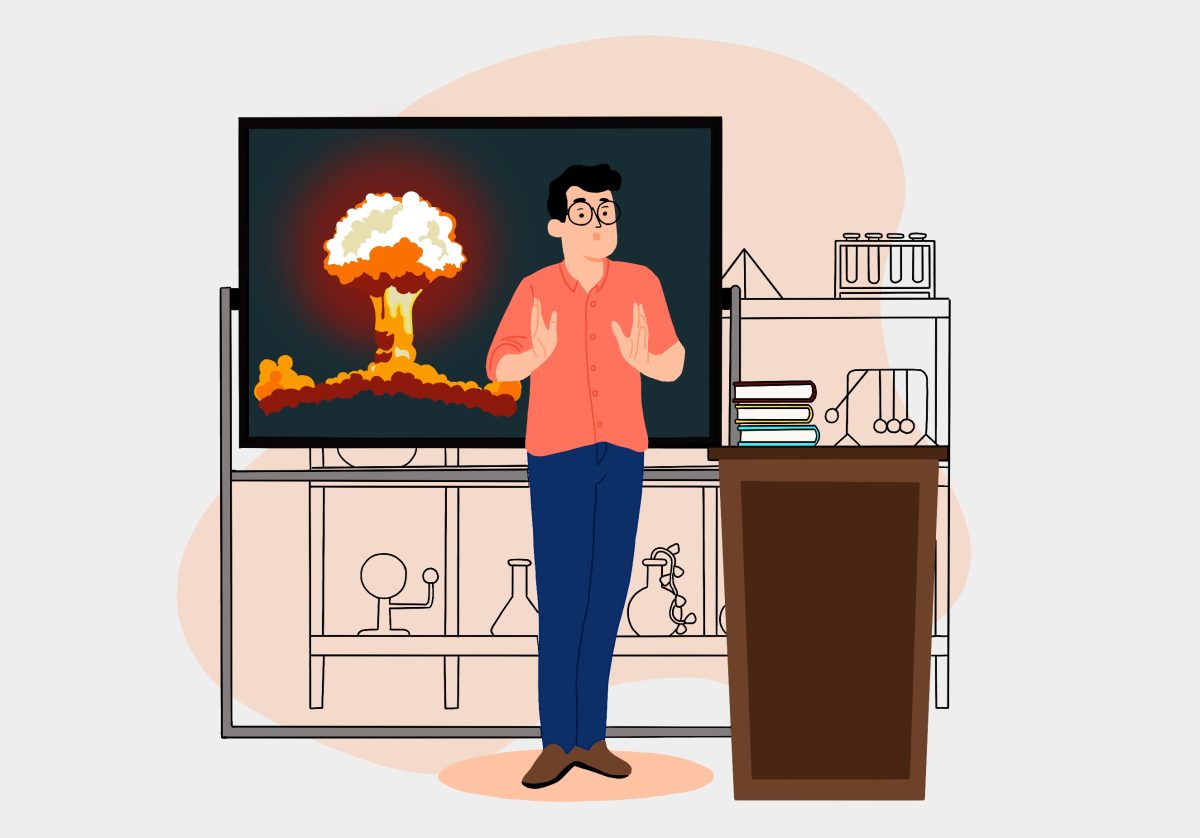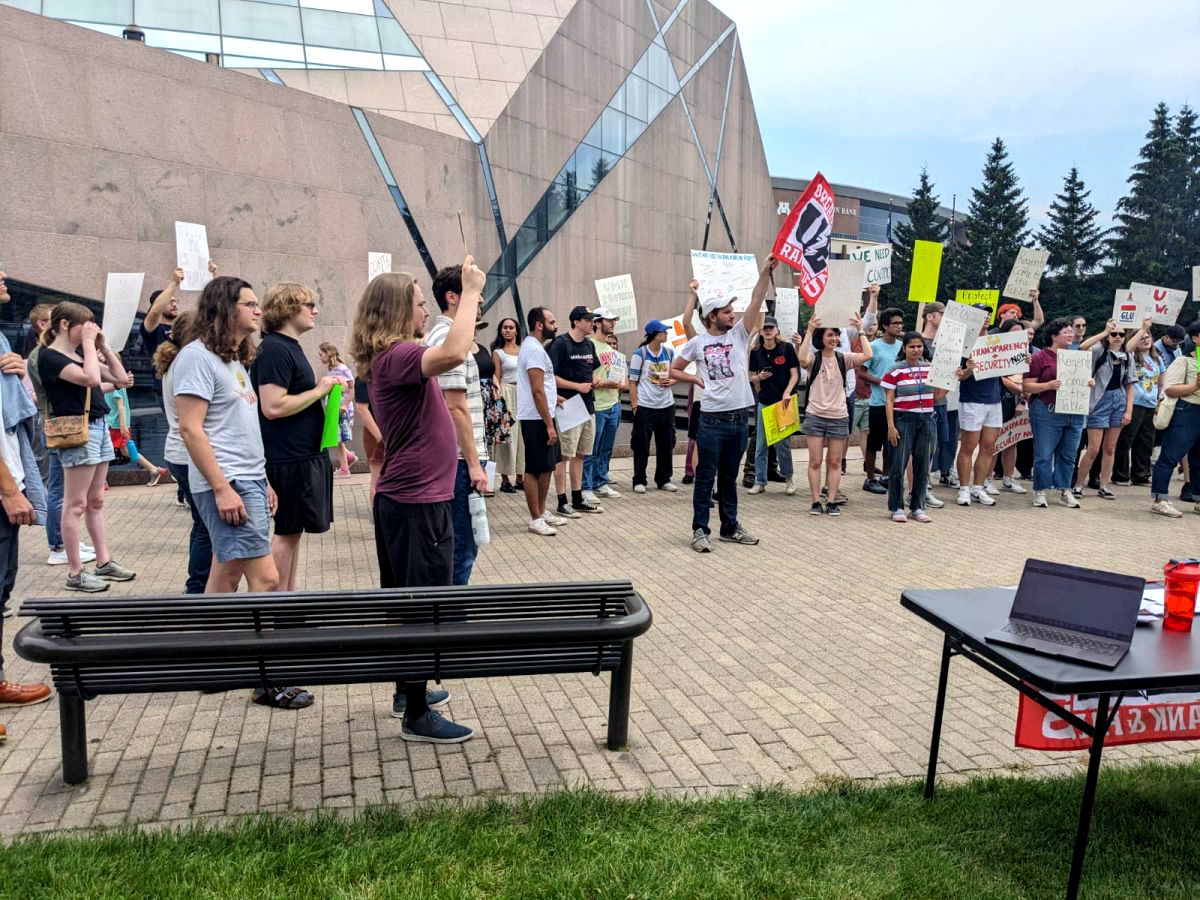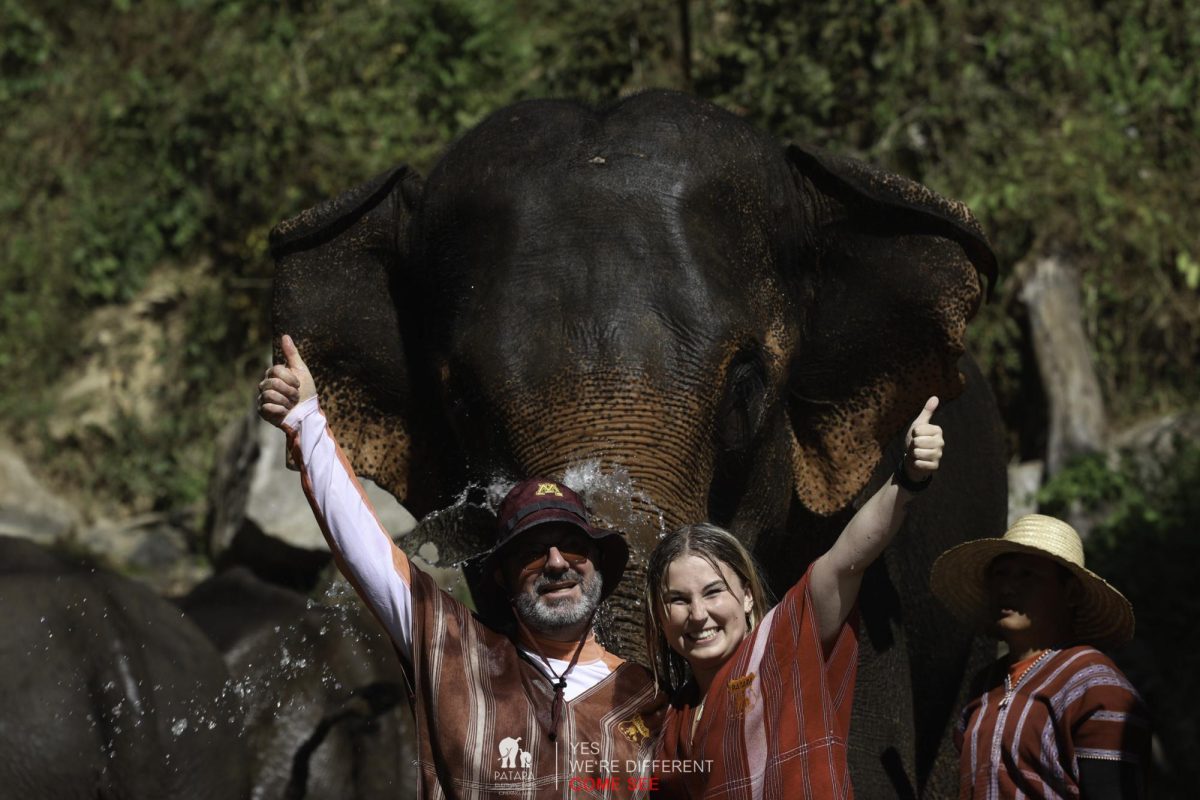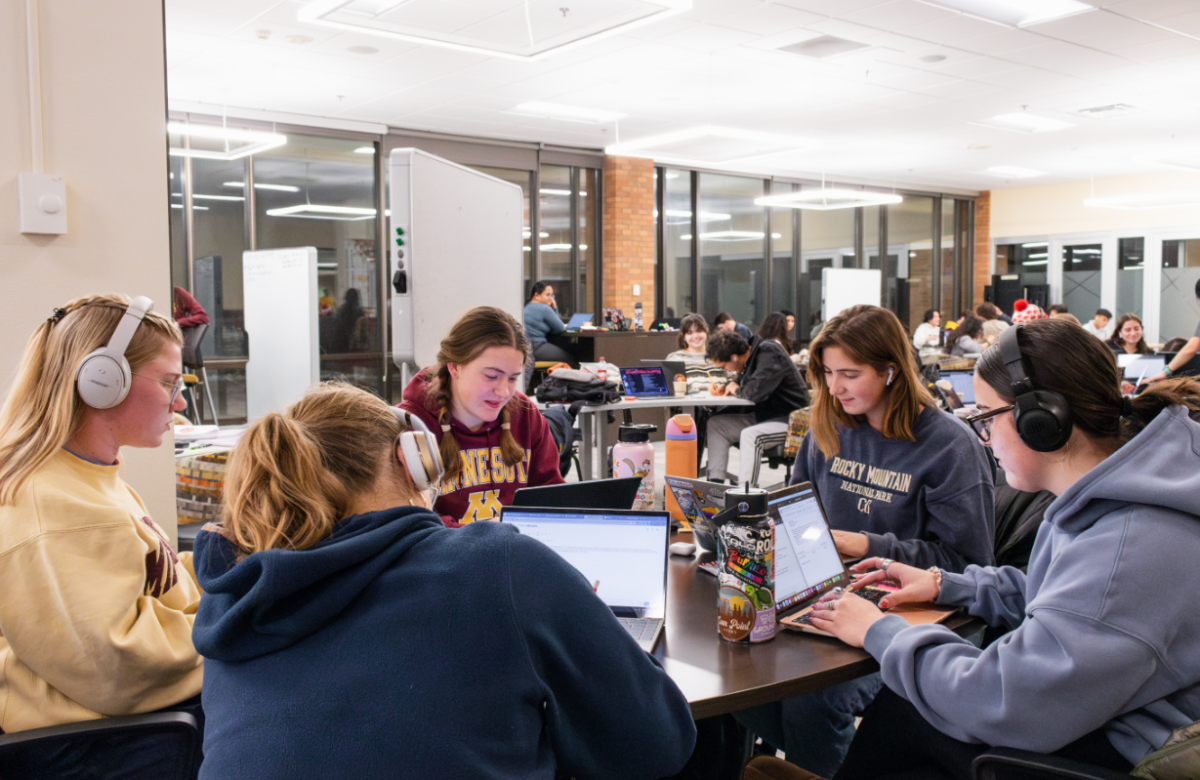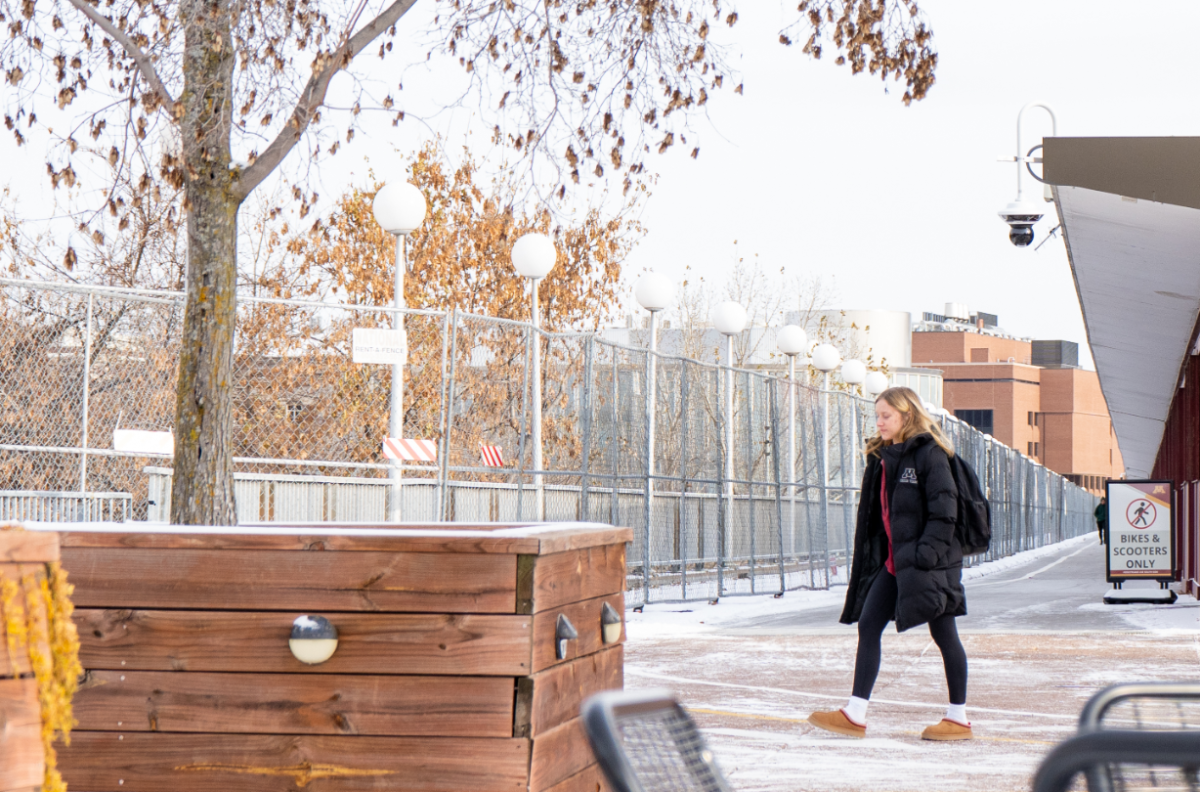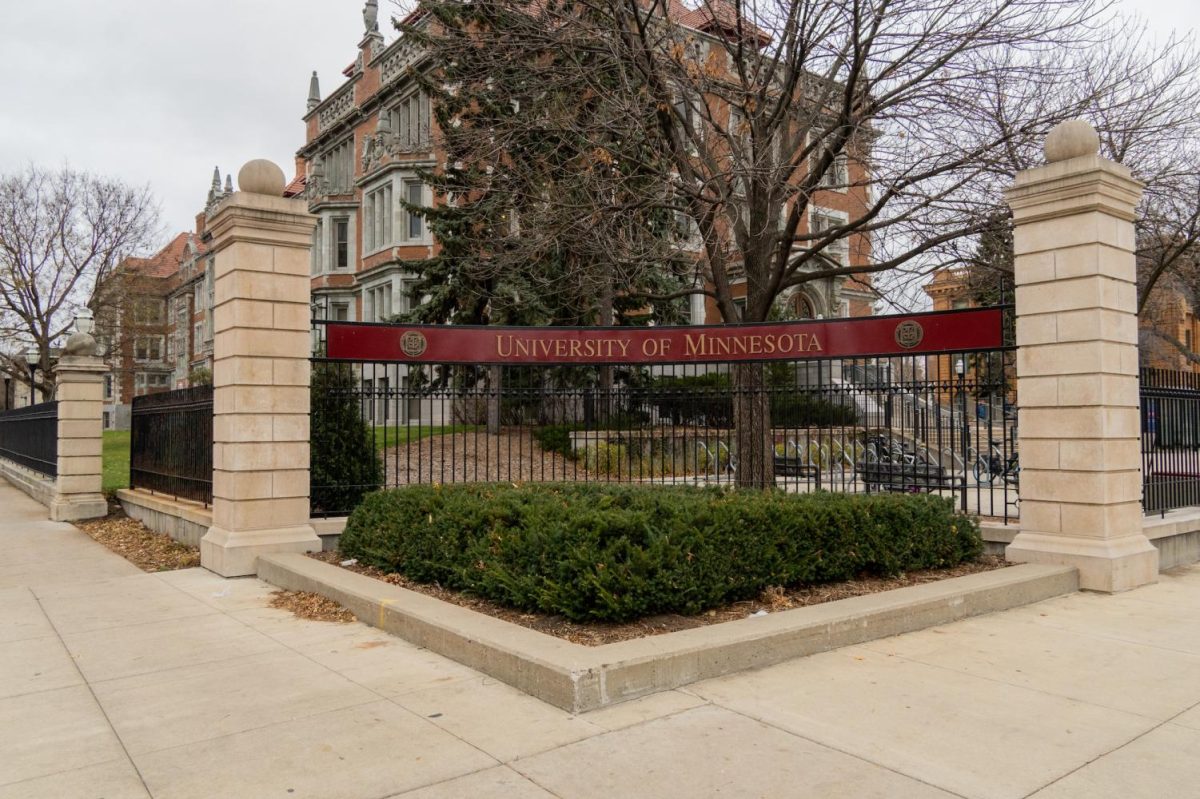Nuclear weapons and their impact have been at the forefront of popular culture, especially after the release of “Oppenheimer” last summer.
The Politics of Nuclear Weapons, a course taught within the College of Liberal Arts’ Department of Political Science at the University of Minnesota, encourages students to think about nuclear weapons both historically and theoretically.
The course engages students in discussion about topics such as how nuclear weapons affect international politics, how likely a nuclear war is and how dangerous nuclear proliferation can be, according to course professor Mark Bell.
Bell added that nuclear weapons have operated in the background of international politics for a long time.
“They are not used that often, and a lot of the history around nuclear weapons is ambiguous or it’s complicated,” Bell said. “A lot of the course is getting students to wrestle with that ambiguity.”
According to Bell, the course includes a simulation where students try to figure out what makes these weapons useful in international politics versus what does not.
“We have 14 teams, each representing a different country, so all the nuclear-armed states but then some other non-nuclear-armed states as well,” Bell said.
Students discuss internally within their teams what they want to achieve before they engage in negotiations with other teams, Bell added.
Payton Benoit, a third-year student in the class, said her team represented North Korea and came up with specific goals that Bell later approved.
Benoit added the course has helped her gain more background knowledge into the implications that nuclear systems have in current events going on around the world.
“It helps to be able to contextualize things and make sense of it because a lot of the news that comes out mentioning nuclear weapons can be alarmist,” Benoit said.
Bell said nuclear weapons have become more prominent in the news and in conversations around the globe, especially after the release of “Oppenheimer” in July 2023.
“With the ‘Oppenheimer’ movie, nuclear weapons are back in popular culture,” Bell said. “The movie and its success, I think, has paralleled the increased prominence of nuclear issues in the world.”
Mikhail Troitskiy teaches a similar course at the University of Wisconsin-Madison covering topics like the origin of nuclear weapons, the strategies developed for their use and the consequences of their development. He said it is important for students to learn about international security.
“Any student of international politics should get to know about this very important factor of international security that manifests itself in so many cases and regions,” Troitskiy said.
Kelso Anderson, a former student of Bell’s class, said he worked on a project with Bell and another former student that was published in an international affairs magazine.
According to Anderson, the group determined the basis of nonproliferation policy that aims to limit the production and spread of nuclear weapons.
They gathered information about what variables make nonproliferation work and gathered empirical data on each variable to determine if it is becoming stronger or weaker.
“Our argument is that it is becoming increasingly unsustainable for the United States to pursue nonproliferation policy,” Anderson said.
Anderson added working with a faculty member on a scholarly project and going through the process of getting it published was a “great experience to have.”
“The idea for this article came out of a discussion we had in class when we were talking about North Korea,” Anderson said. “The conversations in the course were actually the basis for the article to begin with.”
According to Bell, a number of students who take the course have gone on to work with nuclear weapons in government and have obtained fellowships to further study these issues.
“Nuclear weapons are not just abstract things that exist in the background of international politics, these are weapons that do things,” Bell said. “When you’re threatening to use nuclear weapons for a particular purpose, we should be honest and open about what that actually means.”


